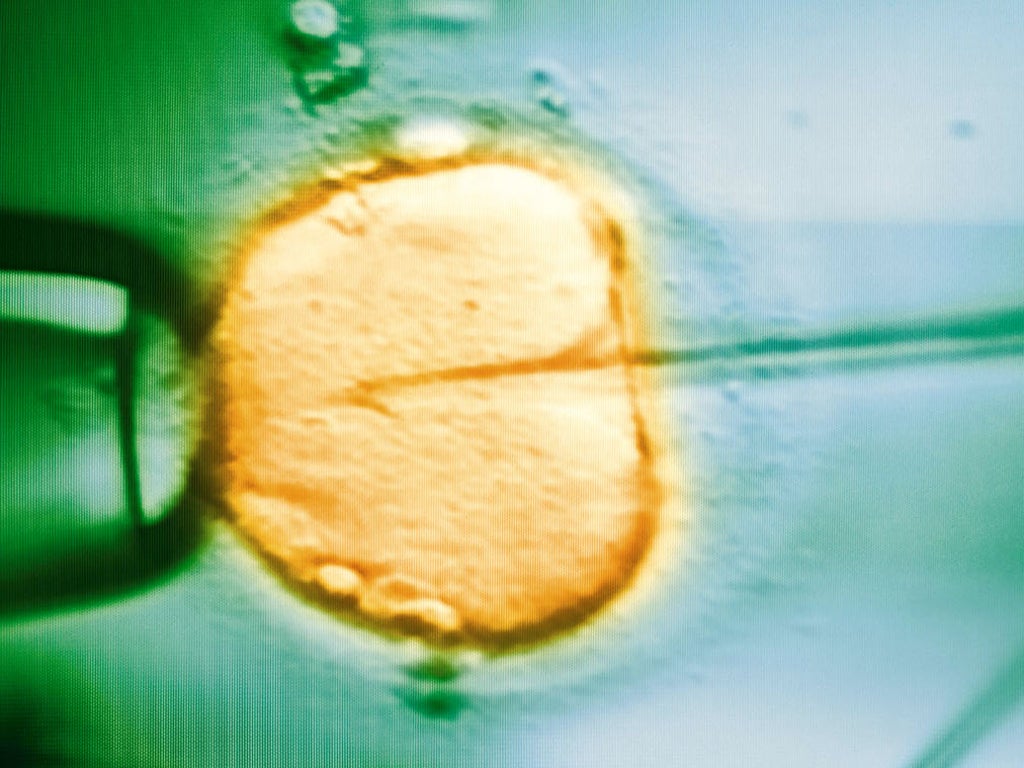Change in law may allow 'three-parent IVF' in Britain

The controversial technique known as "three-parent IVF" came a step closer yesterday after the Department of Health asked the fertility regulator to conduct a public consultation into its acceptability.
At the same time the Wellcome Trust announced extra funds to expand research into the technique, which uses genetic material from three parents – two women and a man – to create a baby.
The procedure, which is banned in the UK, is aimed at helping the estimated 12,000 people who have mitochondrial disease – defects in the small structures called mitochondria that surround the cell nucleus. But it is opposed by some groups who say it is meddling with the building blocks of life.
Mitochondrial disease is inherited but is only passed down the maternal line. About 100 babies are born each year with a severe form of the disease, for which there is no cure, and many die in infancy. Some women have had up to six children who have died.
The proposed procedure involves removing the nucleus from an affected woman's egg, transferring it to the shell of an egg provided by a female donor who has healthy mitochondria – the batteries of the cell – and then fertilising it with the sperm of the affected woman's partner. The baby would have genetic characteristics chiefly from its mother and father plus some from the mitochondria of its third parent, who provided the donor egg.
An alternative method involves fertilising the woman's egg with her partner's sperm before transfer into the donor egg.
Public Health Minister Anne Milton said: "Mitochondrial disease, such as muscular dystrophy, can have a devastating impact on the people who inherit it. Scientists have developed a new procedure to stop these diseases being passed on. But such a procedure would not be allowed in treatment under current law, so we are consulting the public as to whether we should change the law."
Sir Mark Walport, director of the Wellcome Trust, announced a £4.4m grant towards the £5.8m cost of building a new centre at Newcastle University, which will lead research into mitochondrial disease.
Doug Turnbull, Professor of Neurology at the university, who will be the centre's director, said there were high hopes for the research. "If this technology proves to be as safe as IVF and as effective as preliminary studies show, yes, I think we could totally prevent transmission of these diseases."
The public consultation by the Human Fertilisation and Embryology Authority will start this year.
The Society for the Protection of Unborn Children said: "These macabre experiments are destructive and dangerous, and therefore unethical".
Subscribe to Independent Premium to bookmark this article
Want to bookmark your favourite articles and stories to read or reference later? Start your Independent Premium subscription today.

Join our commenting forum
Join thought-provoking conversations, follow other Independent readers and see their replies